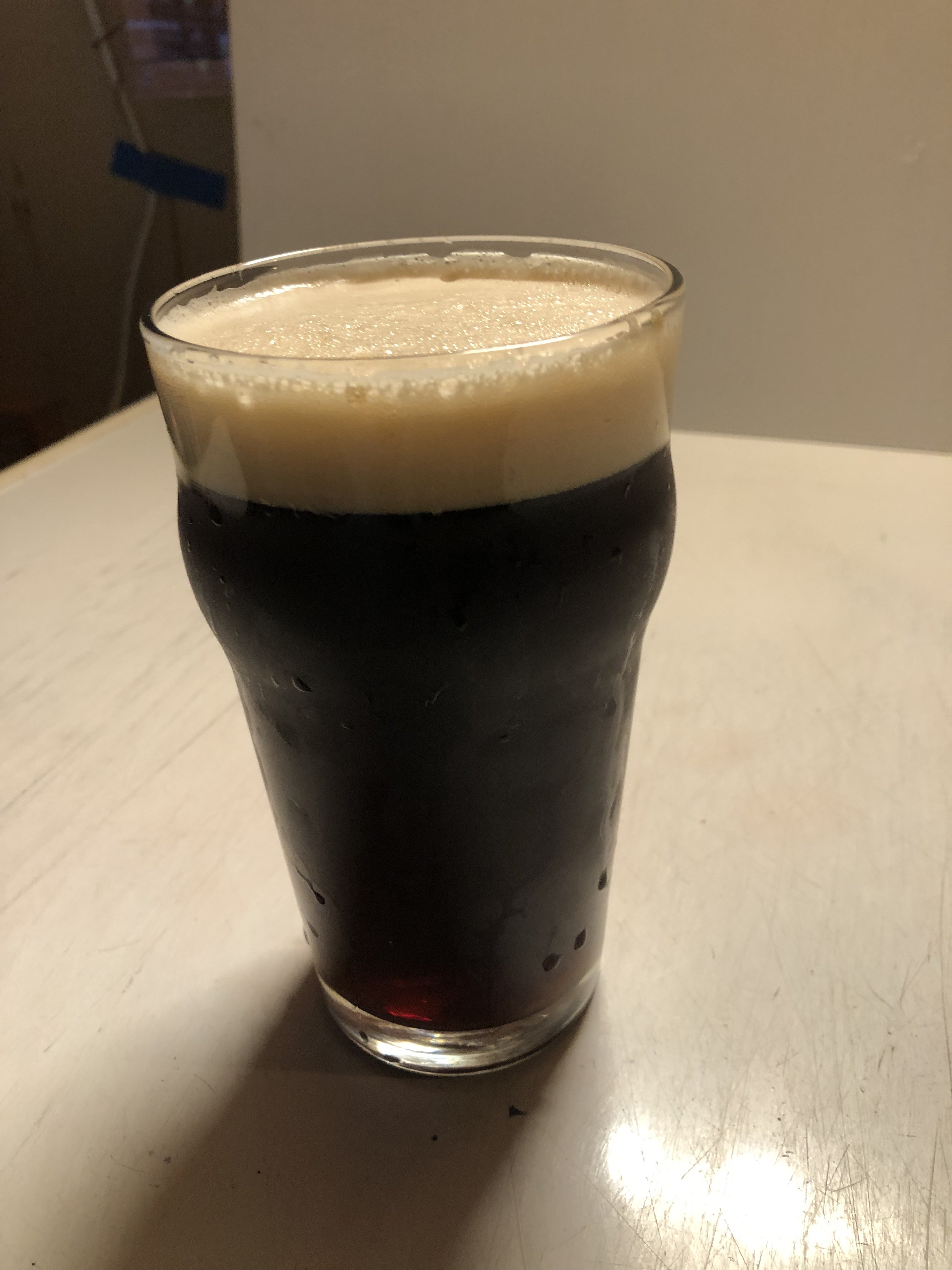crusader1612
Well-Known Member
are you adding caramel to a brown ale?
or you just want a sweeter brown ale?
or you just want a sweeter brown ale?

I want to play with flavors. I need to optimize the grain bill, calibrate the mash temp and boil time to get a sweet caramel brown beer.are you adding caramel to a brown ale?
or you just want a sweeter brown ale?
@tracer bullet I adore the W Yorkie yeast. Suregork pairs it as equivalent to WLP022 Essex Ale.
![Craft A Brew - Safale S-04 Dry Yeast - Fermentis - English Ale Dry Yeast - For English and American Ales and Hard Apple Ciders - Ingredients for Home Brewing - Beer Making Supplies - [1 Pack]](https://m.media-amazon.com/images/I/41fVGNh6JfL._SL500_.jpg)










Anyone have a gluten free English Ale recipe?
Have had this reply from the Five points brewery re the water.I'm not sure where I got this water profile from, but it's the one I've been using for quite some time now for Bitters
View attachment 725843
So I am tinkering a bit with my recipe for what is supposed to become my house porter, done it a few times with some small changes between each time and coming near what I'm looking for.
Last time I did MO as base, 8% UK crystal 240(ebc), 9% Brown malt and 3% black malt. Looking for something in the lines of London porter but a bit more beefy and a little "harder" rostyness and it got a little bit too hard and dry this time, otherwise really good.
So I am thinking about upping the crystal and brown to 10% each, and switching the black malt to 2% chocolate.
Will keep the the same at 1.054 and probably get AA around mid 70's, does this sound like a good change to get it nice and roasty but not too harsh?
Not too far off!That seems more in line with what I'm after. The other no doubt produce good beer, but more of american dry porter.
I'm after a sweetish caramelly backbone, backed up by coffee and chocolate roast notes, wich probably will be too dominating if done the american way with loads of black malt.
Yours and mine recipe seem pretty similair, I'll try my changes and see what I'll end up with. @BarkingSpider
Not too far off!I'm tempted to streamline the recipe some more and just go with 5% chocolate, but I like the softer flavor of the pale chocolate/chocolate wheat combo. I'm a big fan of Fullers London Porter and Samuel Smiths Taddy Porter so this a bit of both.
Weyermann chocolate rye is also very good for dark chocolate flavors without the fear of bitter or too much roast. Like the carafa special, no husk.
+1 on chocolate rye
I've always been curious about the chocolate rye but never tried it. I steer my porters towards dry and roasty / coffee, but my stouts towards sweeter and more chocolate flavored. I have considered the chocolate rye a few times for the stout, trying to get chocolate flavors without actually using chocolate, but been nervous it would be "rye" flavored. Is it?
I love rye whiskey, but I hate "rye beer". Never had one I liked, ever. Didn't want to ruin a batch with rye flavors if the chocolate rye tastes at all like the typical rye malt. Rye malt has a unique flavor that doesn't agree with me whatsoever.
Since you say you like Fullers London Porter, I would actually recommed you lower the chocolate malt to 2%, add 12% brown malt, and forgo all crystal malt in favor of 12% dark invert sugar, the rest pale malt.

That’s a whole lotta roast.View attachment 727945
This is the porter I have on tap at the moment;
70% Maris Otter
18% Brown Malt
6% Crystal 70/80
6% Pale Chocolate
30IBU of Fuggle at 60min
WLP033 Klassic Ale
Was shooting for about 1050 but got 1045 and then low attenuation so a easy drinking 3.7%ABV .